
Alcohol drinking is generally bad for health. Toxins found in alcohol gradually weaken functioning of organs and may cause organ failure. Alcohol affects all body organs although the liver and the heart mostly get damaged by it. Toxic effect on the heart due to heavy alcohol drinking manifests as a condition known as alcoholic cardiomyopathy.
Alcoholic Cardiomyopathy Introduction
Alcoholic cardiomyopathy is prevalent in men between 35 and 55 years of age, but it may affect any person addicted to alcohol for a long period of time. Alcoholic cardiomyopathy causes enlargement and weakening of the heart muscle due to long-term alcohol abuse. The heart cannot pump blood efficiently which can lead to heart failure and damage to multiple organs and tissues in the body. The chambers of the heart may swell and the heart muscle may thin leading to dilated cardioamyopathy. Ischemic cardiomyopathy can also result out of alcoholic cardiomyopathy. The disease is life-threatening and requires prompt treatment although in severe cases it may not be reversed and eventually leads to death.
Symptoms of Alcoholic Cardiomyopathy
In early stages alcoholic cardiomyopathy is usually asymptomatic. However, as the disease reaches advanced stages, congestive heart failure may occur. Commonly, a person affected by alcoholic cardiomyopathy experiences discomfort and chest pain. Chest examination may reveal heart murmur. Due to fluid retention excessive swelling in the lower extremities and other parts of the body takes place. The patient experiences shortness of breath especially with activity and strained breathing while lying flat. Heart palpitations, fatigue, weakness and faintness are present too. Alcoholic cardiomyopathy may also cause cough, loss of appetite, weight gain and irregular or rapid pulse. Need to urinate at night (nocturia) and decreased urine production (oliguria) also accompany the disease. The affected person additionally experiences bloating due to enlarged liver, decreased alertness, abnormally low blood pressure and swelling of the veins of the neck.
Treatment for Alcoholic Cardiomyopathy
Diagnosis of alcoholic cardiomyopathy is based on physical examination, medical history, electrocardiogram (EKG), chest X ray, and cardiac catheterization or angiogram.
Treatment for alcoholic cardiomyopathy involves low sodium diet, fluid restriction and avoiding alcohol consumption. Medications used in the treatment include ACE inhibitors, beta blockers and diuretics used in case of heart failure to remove excessive body fluid. Heart function can be improved with an implantable defibrillator (ICD) or a biventricular pacemaker. Sometimes, a single device that combines an ICD and a pacemaker may be implanted. Finally, if the condition is worsening or irreversible, heart transplant surgery may be considered.


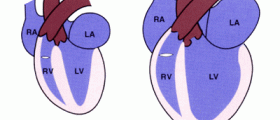
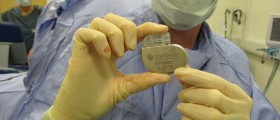



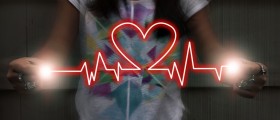



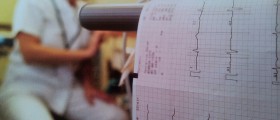



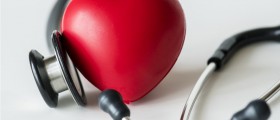
Your thoughts on this
Loading...